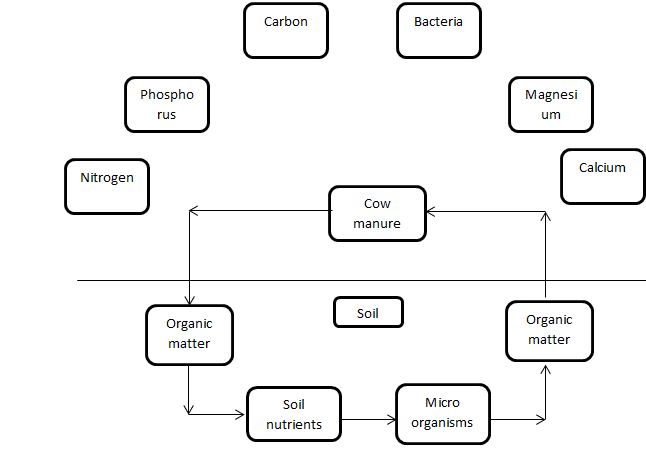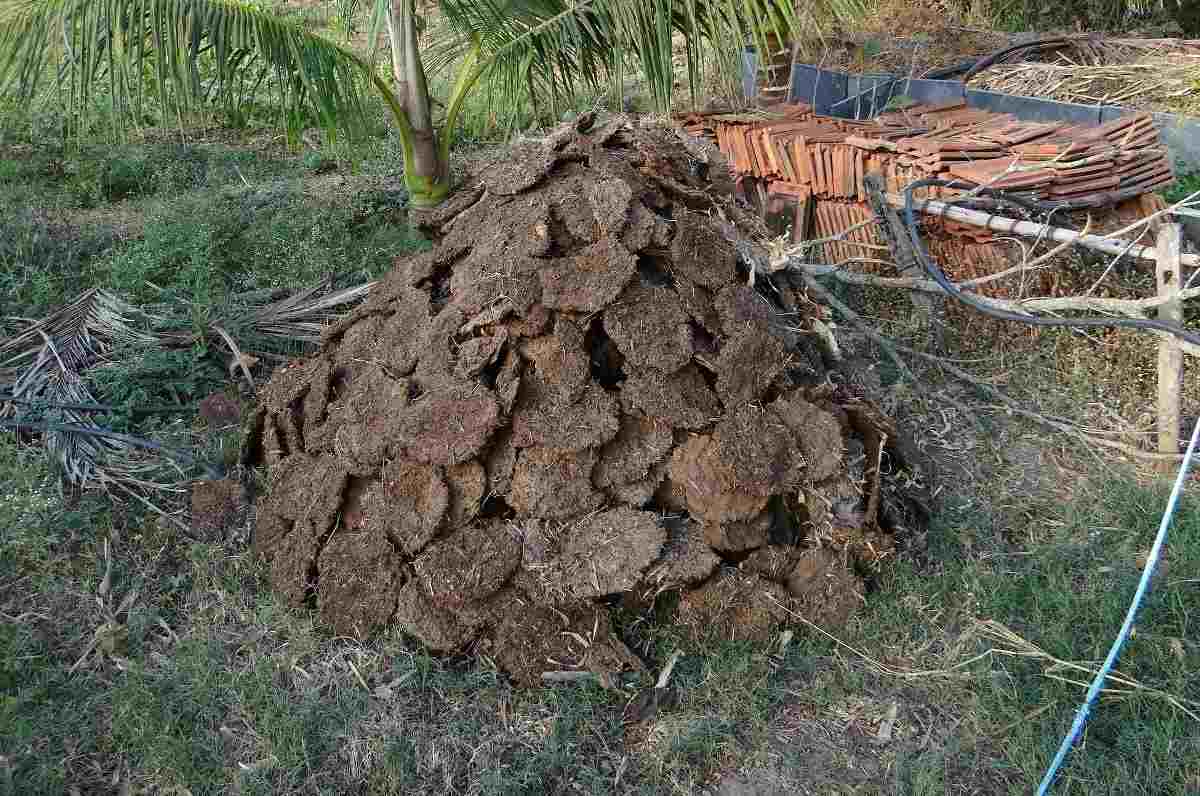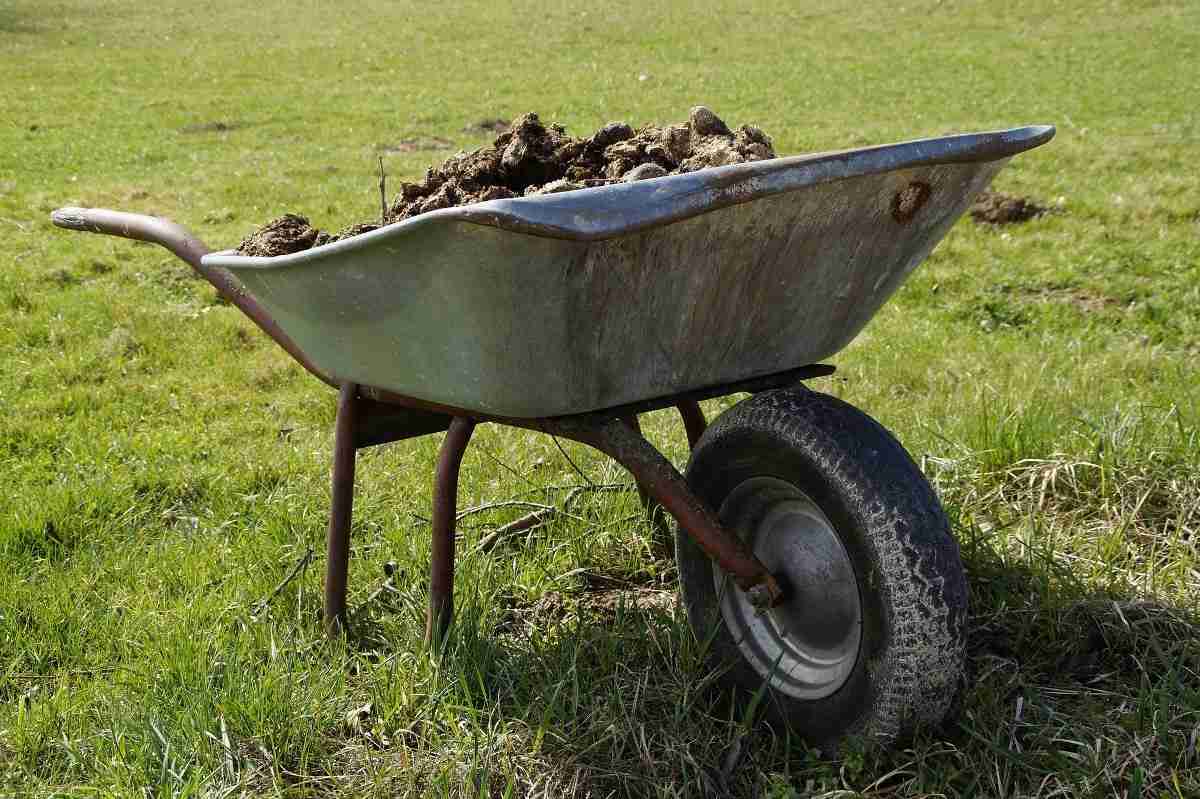Cow Manure for Plants
Hello gardeners, we are back with an organic article. Today’s article is all about cow manure for plants. Do you want to know what is cow manure and how it is prepared? Well and then you need to follow this complete article to know about cow manure for plants.
Introduction to Cow Manure for Plants
Cow dung manure for plants is a very excellent fertilizer and it is highly rich with organic matter which helps to improve aeration and even break up compacted soils. The manure can easily provide the right fertility for the plants to grow and even flourish in your garden. Now, let us get into the details of cow manure for plants in your garden.
A Step-By-Step Guide to Cow Manure for Plants
The use of cattle manure or cow manure, in the garden is an important and popular practice in many rural areas. This type of cow manure is not as rich in nitrogen as many others types and even however, the high ammonia levels can also burn plants when the fresh manure is directly applied. Composted cow manure, on the other hand, can easily provide numerous benefits to your garden.
The Process of Cow Manure for Plants

What is Cow Dung Manure Made Up of?
Cattle manure or cow dung manure is made up of digested grass and even grain. Cow dung is very high in organic calcium materials and even it is rich in all the nutrients. It contains nearly about 3% of nitrogen, 2% of phosphorus, and 1% of the potassium that means a 3-2-1 NPK ratio. And also, cow manure contains very high levels of ammonia and then potentially dangerous pathogens. For this reason, it is usually recommended that it be aged or even composted before its use as cow manure fertilizer.
Benefits Cow Manure Compost
Composting cow manure has many benefits. In addition to eliminating harmful ammonia gas and even pathogens, as well as weed seeds, composted cow manure will add generous amounts of organic matter to the plant’s soil. By mixing this compost into the soil, you can even improve its moisture-holding capacity. This allows you to water less frequently, as the roots of plants can use the additional water and even nutrients when needed. Additionally, it will also improve aeration, by helping to break up compacted soils. Composted cow manure also contains many beneficial bacteria, which will convert nutrients into easily accessible forms so they can be slowly released without burning to tender the plant roots. Composting cow manure will also produce about third fewer greenhouse gases, by making it environmentally friendly.
Composting Cow Manure
Composted manure fertilizer makes a superb growing medium for garden plants. When became compost and fed to plants and vegetables, manure becomes a nutrient-rich fertilizer. They are often mixed into the soil or used as fertilization. Most of the composting bins or even piles are located within very easy reach of the garden. Heavy manures, like that of cows, should be mixed with lighter materials, like straw or hay, additionally to the standard organic substances from the substance, garden debris, etc. Small amounts of lime or ash can also be added. a crucial consideration when composting manure is that the size of your or pile. If it’s too small, it won’t provide enough heat, which is important for the composting process. Too big, however, and therefore the pile might not get enough air. Therefore, frequently turning the pile is important. Composted cattle manure will add a significant amount of organic material to the plant’s soil. With the addition of manure fertilizer, you’ll improve the general health of your soil and produce healthy, vigorous plants.
Disadvantages of Fresh Cow Manure
While the bulk of the microorganisms within the manure are beneficial, a number of them could also be pathogens. There is a very small chance that fresh manure can spread diseases if used on food crops. Manure also can contain weed seeds. Better to compost fresh manure before using it within the kitchen garden to kill pathogens and weed seeds. Some manure can also contain an excessive amount of sodium for healthy plant growth, counting on how the cattle were fed. This is often not a drag where rainfall is high but the sodium can build up and cause problems in arid or semiarid areas.
The Process of Making Compost from Cow Dung Cakes

1. You will need trash cakes and water. The number depends on what proportion of compost you would like to form. So you’ll choose the number as per your need.
2. Take any bucket, drum, or pot. Anything large enough which will be wont to submerge trash cakes in water is ok. Fill it with water enough to submerge trash cakes completely.
3. After submerging trash cakes completely, you need to cover the mixture and then leave it for 24-48 hours.
4. After 24-48 hours, uncover the mixture. Drain the water in another container. Don’t throw away the water because it is often used as liquid fertilizer.
5. Start crushing the wet trash cakes together with your hands to form a powder. The more fine powder you create, the more powerful your compost is going to be.
6. Add old garden soil in trash powder in equal quantity. You will also add Vermin compost or trash compost alongside garden soil to the mixture because it will help within the decomposition process. But that’s optional.
7. Add some water to the mixture now & mix all the ingredients well.
8. Cover the mixture & leave it for 25-30 days. You have got to see the mixture every 3-4 days. Sprinkle some water & crush it together with your hands to form more fine powder of it.
9. After 25-30 days, your trash cake compost is going to be ready to be used. You will use it for any plants & crops. You will use it every season. You will even use it for mulching because it protects plants & crops’ roots from heat. They are often kept & reused for even a year. It keeps on decomposing as long as you retain it.
Commonly Asked Questions about Cow Dung Manure for Plants
In case if you miss this: Vegetable Gardening Tips for Beginners.

How do I use dried cow manure?
When it is turned into compost and when it is fed to plants and even vegetables, cow manure becomes a nutrient-rich fertilizer. It can be even mixed into the soil or it can be used as a top dressing. Most composting bins or even piles are located within easy reach of the garden.
Is dry cow manure is good fertilizer?
Cow manure is a very great all-purpose fertilizer. It is very low in nitrogen content so it will not burn your tender plants, and it has a very good balance of nutrients. What is more, since a cow has four stomachs and it can digest its food so thoroughly and very few weed seeds make it through, so you don’t have to worry about them.
How do I apply cow manure to a plant?
Once it is well-composted, cow manure can also be added directly to a garden bed. It is very low-nutrient but great for improving the soil structure of the plant.
Is cow manure good for the potted plants?
Cow manure will add to the balanced nutrient content of the already very rich soil. It is also a very excellent potting medium for regular houseplants or indoor plants.
Can I put too much cow manure in your garden?
Proper use of cow manure in the garden can even supply your plants with nutrients and then help to improve the soil structure. By adding too much manure can even lead to nitrate leaching, nutrient runoff, excessive vegetative growth, and, for some manures, salt damage.
Does cow manure burn the plants?
Cow manure is the most popular source of manure for plants because it does not contain very high amounts of nitrogen and it is less likely to burn plants.
Will cow manure increase the pH?
The effect of cow manure on soil pH was immediate and even persisted during 8‐wk incubation. Manure‐amended soil had a significantly very higher pH than unamended soil, and the highest rate that means 40 g manure kg−1, dry weight basis increased the pH of Beaverlodge and even Fort Vermillion soils from 4.8 to 6.0 and even 5.5 to 6.3, respectively.
How do I use cow manure on plants?
You need to apply the cow manure by sprinkling near the root zone of the plants for very good results. Then water the plants after applying the manure to mix them properly with the soil content. It can be even used on home garden plants as well as in organic farming.
How does cow manure help plants to grow?
Cow manure slowly releases the nutrients into the soil that plants can very easily absorb. Cow manure contains nitrogen, phosphorus, potassium, and even micronutrients, which are very important for plant health. Nitrogen is the most important nutrient that plants need and it is responsible for rapid plant growth and even the green colour of plants.
How much amount of cow manure do I mix with soil?
If you are using organic fertilizer such as barnyard manure, then you need to spread it evenly over the garden and then work it into the soil. You can even use 20 to 30 pounds of cow manure for every 100 square feet of garden. You should not use it too much. Do not use fresh cow manure because it can injure or burn the plants.
Is cow manure safe for plants?
Composted cow manure is good and safe to use because the heat generated in a compost pile will kill the pathogens that may cause illness. Temperatures that are above 60°C will kill pathogenic microorganisms as well as weed seeds. So, heat is created in a compost pile by nitrogen sources acting on carbon substances.
- How to Grow Hibiscus from Flower
- Plantation Ideas for Home Decoration: A Beginners Guide
- Flower Garden Designs and Layouts for Beginners
- Planting and Spacing Techniques in Papaya: A Beginner’s Guide
- Growing Gold: Essential Techniques for Planting Pineapples
- How to Make Kalanchoe Plant Bushy: Home Remedies and Solutions
- 11 Reasons Why Your Gardenia is Not Blooming: Home Remedies and Solutions
- Eco Elegance: The Guide to Designing a Drought-Tolerant Landscape
- Gardening on a Slope: Strategies for Hillside Landscaping
- Nourish and Flourish: Top Organic Mulches for Thriving House Plants
- Everything You Want to Know about Indian Mogra Flower: Discover Uses and Growing
- Green Thumb Success: Expert Tips for Cultivating Greenhouse Pumpkins All Year Round
- Maximize Growth & Flavor: The Ultimate Guide to Companion Planting in Herb Gardens
- How to Control Rhododendron Problems Naturally: Home Remedies and Organic Ways to Fix Them
- Natural Magic: The Remarkable Benefits of Cinnamon for Plants
- Best Steps to Revive Dying Tulip with Natural and Organic Treatment
- 10 Reasons Why Your Angel Trumpet is Not Blooming: Remedies and Treatment
- How to Fix Periwinkle Leaf and Flower-Related Problems: Natural Remedies and Solutions
- How to Fix Zinnias Leaf and Flower Problems: Discover Natural and Home Remedies
- Organic Steps to Induce Lemon Tree Flowers: A Comprehensive Guide
- Bloom Booster: Crafting the Perfect Homemade Bougainvillea Fertilizer